Generative SEO (GEO): Winning the Future with AI-Powered Search
🔍 What Is Generative SEO?
Generative SEO—or GEO—is the strategic optimization of your digital content so it gets cited by AI-powered search engines like ChatGPT, Gemini, Claude, and Perplexity. Unlike traditional SEO, which aims to rank your page in Google’s search result lists, GEO elevates your content into AI-generated answers, snippets, and summaries.
Think structured content, conversational tone, FAQ sections, and AI-friendly metadata like llms.txt—all to signal to large language models (LLMs) that your content is authoritative, reliable, and worthy of citation.
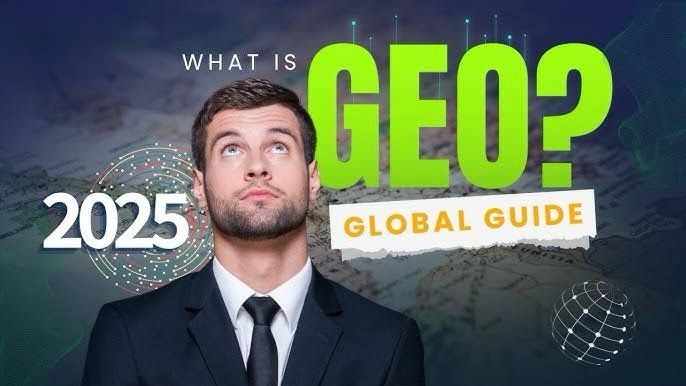
📈 Why GEO Matters in 2025
- Rise of AI-first search behavior: Users are increasingly turning to LLMs instead of typing into Bing or Google.
- Zero-click dominance: “Featured answers” and AI summaries are taking over SERPs—driving awareness without clicks.
- Bigger reach than traditional SEO: Being the source that AI cites can bring massive visibility across voice assistants, chatbots, and search engines.
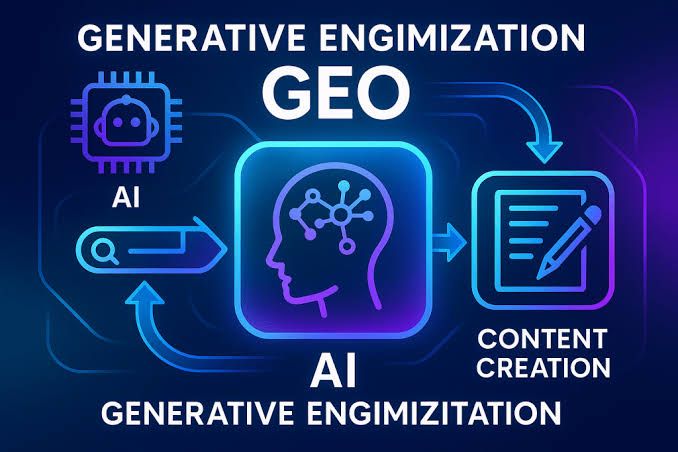
🛠️ 5 Key GEO Tactics to Implement Now
1. FAQ-Style & Conversational Content
- Include clear, voice-search-friendly questions and answers that LLMs can easily parse.
- Natural, long-tail phrases like “how do I optimize for generative AI?” are gold.
2. Structured Data & Metadata
- Use schema (FAQPage, QAPage), headers, and
llms.txtfiles to signal AI-relevance. - Outline your content with H2/H3 labels matching conversational queries.
3. Citeable Authority Through Quality
- Back up your content with trusted sources—case studies, and data—and use external links to authoritative domains.
- LLMs tend to spotlight content that’s well-referenced, organized, and recent.
4. Blend with Traditional SEO
- Continue optimizing for keywords, content marketing, and video marketing.
- GEO complements, not replaces, Search Experience Optimization (SXO)—UX, mobile-first design, fast loading.
5. Audit & Optimize Continuously
- Monitor AI results: train internal crawlers or use tools to see when AI is quoting your content.
- Refresh with new data, optimize headers, and maintain structured markup.
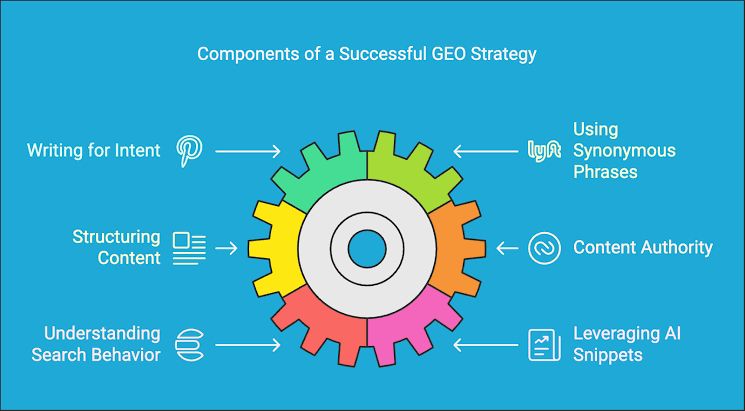
🌟 Trends Fueling GEO’s Rise
- AI-driven search engines: Major players like ChatGPT are being used for search—representing a paradigm shift.
- No-click SERPs: Answer panels and AI summaries are overtaking traditional result links.
- Generative Engine Optimization: A field born in late 2023 and rapidly evolving with strategies like
llms.txtand LLM-friendly architecture Wikipedia.
- Structured Content: Schema markup, FAQs, concise answers — now essential for AI‑readability.
✅ GEO Implementation Blueprint
Perform SEO & Keyword Research
Find conversational phrases like “what is generative SEO?” and “how to optimize for AI search?”
Content Audit & Restructure
Select top-performing posts; add conversational headings, FAQ sections, bullet lists, schema markup.
Create AI-Ready New Content
Write clear, structured guides on GEO, include ‘Asks’ (Q/A sections), and implement llms.txt.
Optimize Ongoing & Monitor AI Visibility
Track whether AI sources are citing your content. Update based on what AI values—structural clarity, freshness, authority.
Integrate with Overall Marketing Strategy
GEO works best alongside traditional digital marketing strategy, content marketing, and voice search optimization.
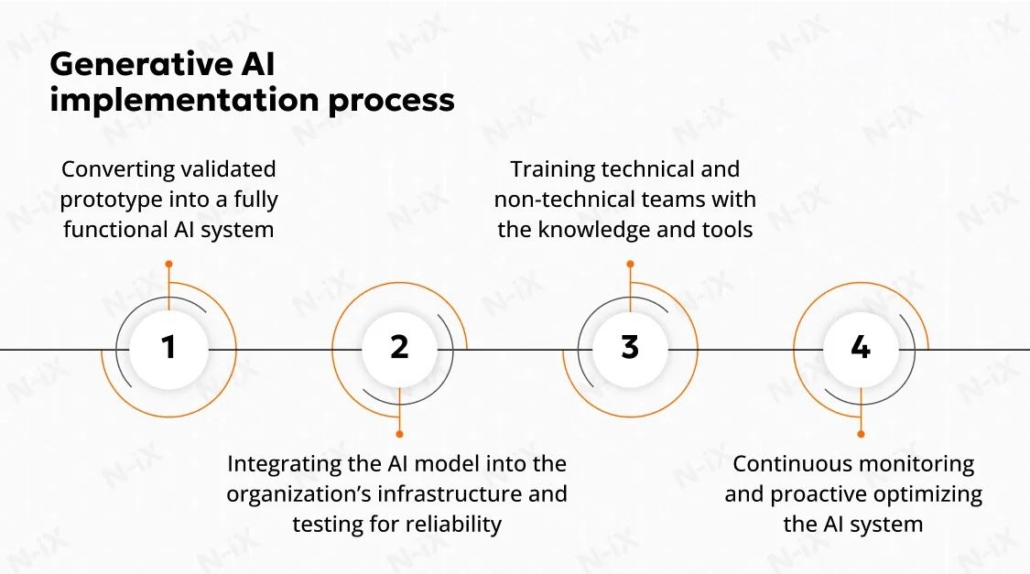
🚀 The Competitive Edge
Brands that master GEO will dominate the emerging AI search landscape. Their content won’t just rank—it will be quoted, summarized, and trusted by AI, reaching users via voice assistants, chatbots, and generative search engines.
Pair GEO with content marketing, video marketing, voice search optimization, and ethical, structured practices for a 360° SEO strategy built for 2025 and beyond.
⚙️ GEO vs. SEO vs. AEO vs. AIO
AI-driven visibility is no longer siloed:
- AEO: Structuring content to be cited by ChatGPT-style answer bots
- GEO: Optimizing for AI citation, visibility, and brand portrayal inside LLM responses
- Traditional SEO: Keyword, backlink, ranking
- AIO (Artificial Intelligence Optimization): Includes content structure, E-E-A-T signals, citation integrity, retrieval modeling, and canonical clarity.
🔧 Hybrid strategy is non-negotiable
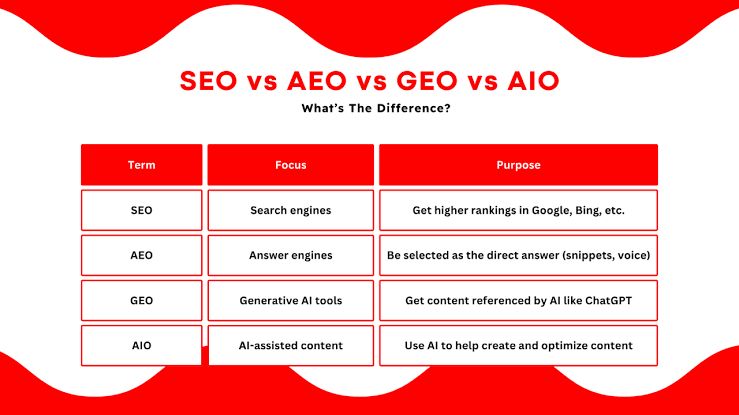
🔁 Quarterly GEO Audit Checklist
🚀 Monitor AI citations & traffic (via Wix or third-party tools)
🔄 Refresh core content (60–90‑day cycle)
🛠️ Update llms.txt based on evolving priority pages
📊 Analyze structured data audit (schema validity, error checks)
📈 Improve entity credibility (e.g. Wikidata edits, authoritative citation outreach)
📝 Add fresh stats, quotes, listicles to boost citability
🔍 Ensure multimodal support—images, transcripts, voice-readiness

✅ Why It Matters Now
Zero‑click dominance: Up to 80% of users get answers without clicking links .
AI-first search behavior: ChatGPT processes ~1 billion searches/week, and brands need to be featured there .
Competitive equity: Even smaller brands can surface in AI answers through well-crafted authority content .
Protect brand presence: Control how AI portrays you—your citation > your ranking.
🔚 Final Thoughts
Generative SEO is not a trend—it’s the future of search optimization. As users shift toward AI-first search behaviors, your content must be discoverable and quotable. By embracing structured content, conversational tone, schema, and authoritative sourcing, you position your brand not just to rank—but to be heard by the next generation of search engines.

Leave a Reply
Want to join the discussion?Feel free to contribute!